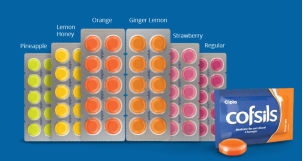Posted on 16th Jul 2024

For most of you reading this, at some point in your lives, you must have had an itching sensation and painful discomfort in your throat (pharynx). This throbbing pain must have resulted in difficulty in swallowing and talking, and hampered your everyday activities. This is due to a condition called a sore throat, also referred to as pharyngitis. Additionally, it also causes dryness and gives a coarse feeling in your throat region. This ailment is one of the most prevalent symptoms in people suffering from common cold, influenza, and other upper respiratory tract infections. This respiratory tract infection can cause soreness and stinging not only in the throat, but the painful sensation can also spread to the ears and the neck region of the individual. They generally last for a short period of time (until the infection wears off) with mild intensity, but if the discomfort lasts for a long period of time, it is advised to seek medical advice immediately.
The symptoms are more widely found in viral infections than their bacterial counterparts. A form of sore throat infection called Strep throat (streptococcal infection) is caused due to bacterial infections. Let us understand more about this condition by looking at the sore throat causes, symptoms, and treatment associated with the condition.
Irritants: When pollutants in the air are inhaled - automobile exhaustion gases and smoke from cigarettes, it can lead to throat irritation. Furthermore, excessive consumption of and spicy foods also causes sore throat. Similarly, straining your vocal cords by screaming or talking excessively can affect your throat.
Allergies: Allergies caused due to exposure to allergens such as chemicals, dust, pollen, and mold can also result in sore throat.
Bacterial infections: When a person is exposed to bacterium such as the Streptococcus pyogenes from group A streptococcus, there is a risk of catching the contagion which leads to inflammation, swelling, and irritation in the throat.
Viral infections: Illnesses such as the common cold, measles, influenza, and mononucleosis can cause sore throat. Additionally, the coronavirus of the recent pandemic Covid-19 is also said to be a source of viral infections.
Fungal infections: Candida is a type of yeast infection where fungus grows inside your mouth (tongue, gums, palate) and causes a condition called oral Thrush. This is a non-contagious form of throat infection that can be treated.
There are several symptoms in a person is suffering from a sore throat. Let us take a look at a few common signs of sore throat:
Raspy sensation in your throat: Scratchy feeling during talking and swallowing food.
Coarse voice:One can face difficulty in speaking clearly due to the hoarseness and lack of clarity of the voice.
]Redness and Swelling of the throat: You can observe small red spots called petechiae on the roof of your mouth and behind the throat that indicate an infection.
Swelling and inflammation in your neck region: the lymph nodes tend to swell and become enlarged.
Difficulty in swallowing: Due to inflammation caused in the throat glands, the intake of both solid and liquid is restricted, making it difficult to ingest any form of food.

Lozenges are widely used remedies for pain relief from sore throat which may also be useful to relieve pain due to tonsillitis infections. They are an easily available remedy as they provide instantaneous although temporary relief due to their soothing effects. Here's an explanation of how throat lozenges for can be helpful in managing a sore throat:
Soothing effect: Lozenges for throat irritation typically contain ingredients such as menthol, eucalyptus, or benzocaine, which can provide a cooling and numbing effect. These ingredients can help alleviate the pain and discomfort associated with a sore throat by temporarily numbing the throat tissues.
For suppressing cough: Some throat lozenges contain cough suppressant ingredients such as dextromethorphan. If a sore throat is accompanied by a persistent cough, these lozenges for throat irritation can help temporarily suppress the cough reflex, providing relief and allowing the throat to heal.
Throat lubrication: Many sore throat lozenges are formulated with ingredients like glycerin or honey, which can help moisturize and lubricate the throat. This can be beneficial, especially if the sore throat is accompanied by dryness or throat irritation. By providing moisture, lozenges can help relieve dryness, ease throat irritation, and reduce the urge to cough.
Increase in saliva production: Sucking on lozenges for throat irritation stimulates saliva production. Saliva acts as a natural lubricant and helps to keep the throat moist. This can contribute to soothing a dry and scratchy throat, reducing discomfort and throat irritation.
However, throat lozenges may not be suitable for everyone. Some individuals, such as young children or those with certain medical conditions or allergies, must to avoid certain ingredients found in throat lozenges. It's advisable to read the labels, follow the instructions, and consult a healthcare professional if there are any concerns or uncertainty.
In conclusion, throat lozenges can provide instant temporary relief and soothing effects for a sore throat by numbing and cooling the throat, moisturizing and lubricating the tissues, suppressing the cough, and stimulating saliva production. They can offer symptomatic relief and a sense of comfort while the body's natural healing process takes place. However, it is important to note that sore throat lozenges provide symptomatic relief and are not a cure for the underlying cause of a sore throat. If the sore throat persists for an extended period, is severe, or is accompanied by other concerning symptoms, it is essential to consult a healthcare professional for proper diagnosis and treatment.